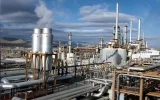Challenges of the petrochemical industry in the export market

According to Energy Press, considering the high amount of trade in food and agricultural products with Brazil, which makes Iran, for example, the first foreign buyer of Brazilian corn (6.6 million tons in 2022) in some years, as well as the need to create a balance Trade with Brazil, the export of petrochemical products is considered one of the main fields of trade development and resolving Iran’s trade imbalance with Brazil. Within the last 5 years since 2019, the export of urea fertilizer has faced ups and downs and has recently faced more serious challenges. As someone who has been directly and continuously involved in this issue, Hossein Al-Garuk, the former ambassador of Iran in Brazil (1402-1398), has a case study of this trade that can contain lessons not only in relation to Brazil but also sometimes to other countries that are exploited. Business operators should be placed in the field of petrochemical trade. What follows is a summary of this study.
Discontinuity between production structure and commercial structure in petrochemicals
The most important primary reason for the success of petrochemical exports to Brazil is the creation of a stable structure to ensure the continuity of product supply to the target market, which has been able to reach one and a half million tons of exports per year in the best case. This structure, if modified and improved, could create a fixed export capacity of 3 million tons in the short term, not only for Brazil but also for the South American region. “Entering the market” in the first place and then “maintaining the market” through conventional business methods leads to stability and continuity in the desired business. At the same time, due to the structural reasons of entrepreneurship and supervision in the field of petrochemicals, the wholesale sale of Iranian petrochemical products is done through public sales in the form of tenders. Although this type of sale is apparently without margin and justifiable for bureaucratic managers, it fuels a major break between the production structure and the commercial structure, which ultimately affects the company’s interests. As a result of this gap, commercial structures do not have the integrated support of petrochemical complexes to manage the target markets, and the result is the fluctuation of the volume and value of transactions in the trade of petrochemical products, which has constantly occupied the minds of those involved.
Original production or business
This issue is especially important for petrochemical products, including all types of polymers. Scattered and competitive sales in the form of tenders cannot guarantee the continuity of the foreign customer’s production chain structure. As I have emphasized before, there is a need to converge between the production and commercial structures, and to adapt the production structure to the needs and the state of the commercial structure. In particular, we should keep in mind that in Iran there are practically no business management companies with high financial power to compensate for this shortcoming, and mostly Iranian businessmen have limited capital, which neither have the ability to provide long-term purchases from domestic companies, nor can they have an effective impact on the target market. have Creating manufacturer/trader structures with integrated management to maintain the target market is one of the ways to overcome this shortcoming.
Non-constructive and non-competitive monopoly or collective management of the market
Entering new markets and maintaining the market has nothing to do with monopoly. Market management should not be confused with monopoly by Iranian companies. From the point of view of a business manager, exclusive presence may make his work easier. But this does not mean continuous and long-term success in the target market. The existence of numerous exporters, but committed to the principles of healthy competition, while being able to allocate more capacity in the market, also facilitates transactions and constructive synergy. The experience of what happened in the last few years in connection with the export of urea to Brazil showed what harms we have faced. Expanding the entry of more domestic exporters into the target market along with collective management is a guarantee of continued success in the market.
Clearing and flexibility in business methods
In the clearing method, both money transfer costs and agreement on prices and transportation costs are significantly saved. In this method, basic infrastructure is needed to start the exchange cycle. The convergence of the production structure with the commercial structure to create and maintain sales capacity can help this; Something that cannot be realized through current inflexible and sectional methods. For example, considering the high demand of the Brazilian market for petrochemical products and in contrast to Iran’s multi-billion dollar imports from this country, the clearing method in a wider range of petrochemical products can easily be an important part of the country’s “food security” macro strategy.
Tags:petrochemical
- Comments sent by you will be published after approval by site administrators.
- Comments that contain slander will not be published.
- Comments that are not in Persian or not related to the news will not be published.

Comments
Total comments : 0 Awaiting review : 0 Date: 0